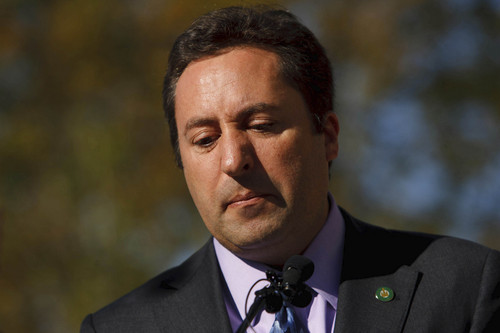This is an archived article that was published on sltrib.com in 2014, and information in the article may be outdated. It is provided only for personal research purposes and may not be reprinted.
Experts say that only a small fraction of rapes are reported and that the prosecution rate in those cases is dismally small — in Salt Lake County it's 6 percent. In many instances of alleged sex assault, forensic evidence gathered from the victim is not even analyzed.
Such evidence — including semen and saliva that can provide DNA — is collected by specially trained nurses in what is called a Code R kit, or rape kit. The evidence could be key to a conviction.
But of 1,001 sex assault investigations from 2003 to 2011, the Salt Lake City Police Department has not forwarded 788 — nearly 79 percent — of rape kits for processing at the state crime lab.
The problem is not unique to Salt Lake City, but the number of unprocessed rape kits at the SLCPD has caught the attention of the Salt Lake City Council.
"How could this possibly come to pass?" asked Councilman Kyle LaMalfa before a Tuesday council work session. "I'm almost overwhelmed by the injustice."
There is a shocking lack of prosecution of sex assault cases in Salt Lake County, according to Holly Mullen, executive director of the Rape Recovery Center.
"It stems back to a lack of processing of rape kits," she said in an interview.
But Police Chief Chris Burbank told the council Tuesday that his department is not delinquent when it comes to seeking DNA and other forensic evidence. He pointed to victims that can be unreliable or change their stories, cases that boil down to "he said — she said," and a state crime lab that he said "has not been a good partner."
Salt Lake City investigators won't forward rape kits for forensic evidence unless they believe it will bring a prosecution from the Salt Lake County district attorney, the chief said.
"We prioritize every case based on whether we can solve that case," he said. "To arbitrarily say we will process every case [for DNA] in a specific category is not efficient."
Concerning the crime lab, Burbank complained of a lack of communication. Not only does it take six months to analyze a single DNA sample, he said, but police in some cases have had to use the Government Records Access and Management Act (GRAMA) to find out the status of evidence.
Burbank said he is pursuing an agreement with an undisclosed private firm to analyze DNA evidence to sidestep the state lab.
There is plenty of fault to go around, according to Mullen, including police in many jurisdictions not understanding what a rape victim experiences.
"Part of the problem is that police will accuse a victim of lying, and they won't turn in their rape kits [to the state crime lab]," she said in an interview. " A lot of cops are stuck in the mentality of, 'she asked for it.' "
Rep. Jennifer Seelig, D-Salt Lake City, in an interview, called the lack of rape-kit processing an "atrocity." Earlier this year, she successfully sponsored legislation that seeks to undo confusion she said exists between police, the crime lab and county prosecutors.
"I found a lot of finger pointing and a lot of frustration," she said of the coordination — or lack thereof — between agencies.
Salt Lake County District Attorney Sim Gill said backlogs of rape kits is a national problem. But he added that local law enforcement agencies must work together in a more-coordinated fashion.
"We need to look at it as a systemic issue," he said. "It is an indictment of a system that is failing to respond."







